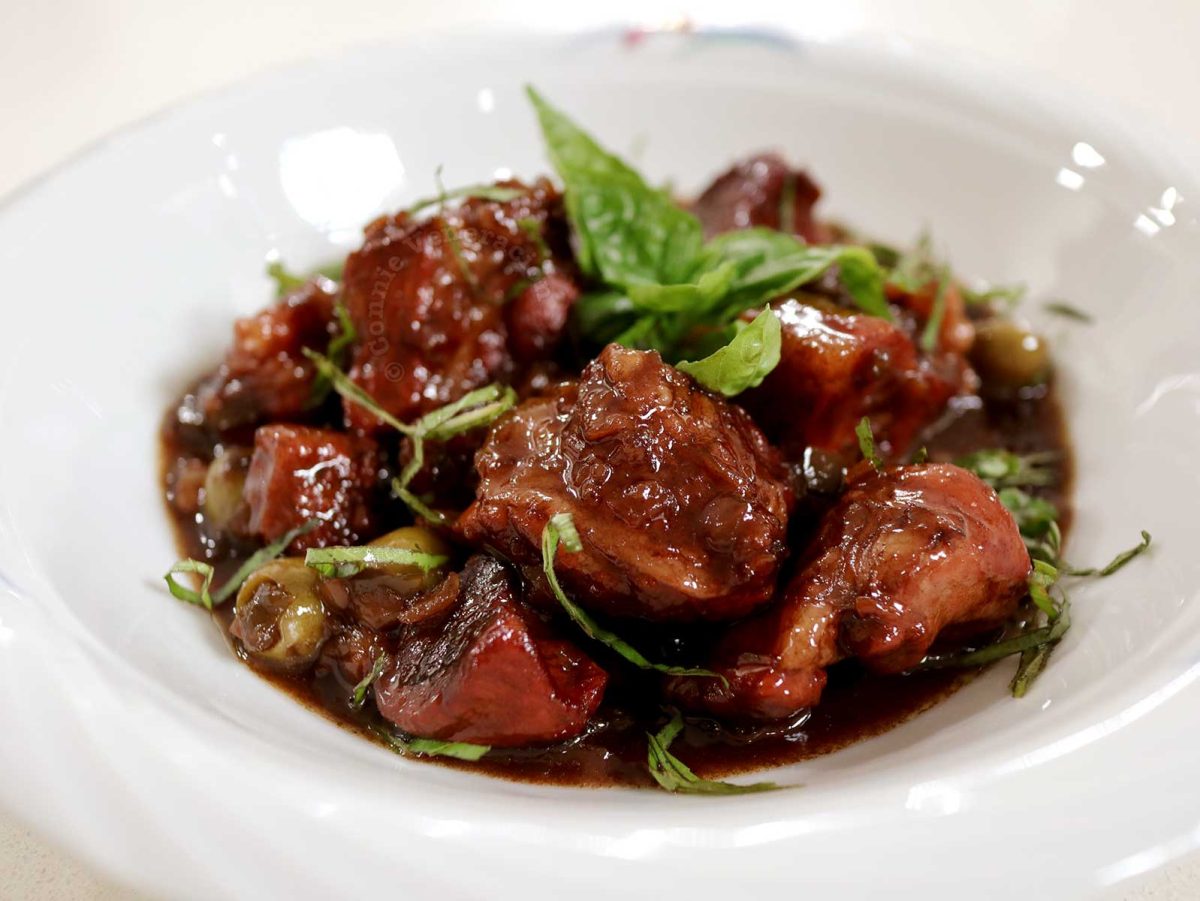In Italian cooking, agro is sour; dolce is sweet. But you already guessed that, right? Spezzatino is a class of dishes similar to what we call stew cooked with cuts of veal, lamb, pork or beef that require long and slow cooking. Spezzatino is traditionally served as a second course.
Italian agrodolce is not the same as the sweet sour sauce in your Chinese food. While vinegar and sugar are the basic ingredients, dried fruit (golden raisins in this recipe) is an important part of the mixture.
The choice of vinegar affects the final flavor of agrodolce. Red wine vinegar is traditional in Sicily. Substituting Balsamic vinegar adds sweetness. I used both to cook my Italian-style sweet sour pork stew.

It all begins with seasoning and marinating pork cubes in a mixture of brandy and Balsamic vinegar. The meat needs at least two hours to soak up the flavors.
Sometime during those two hours, raisins are soaked in hot water to plump up.
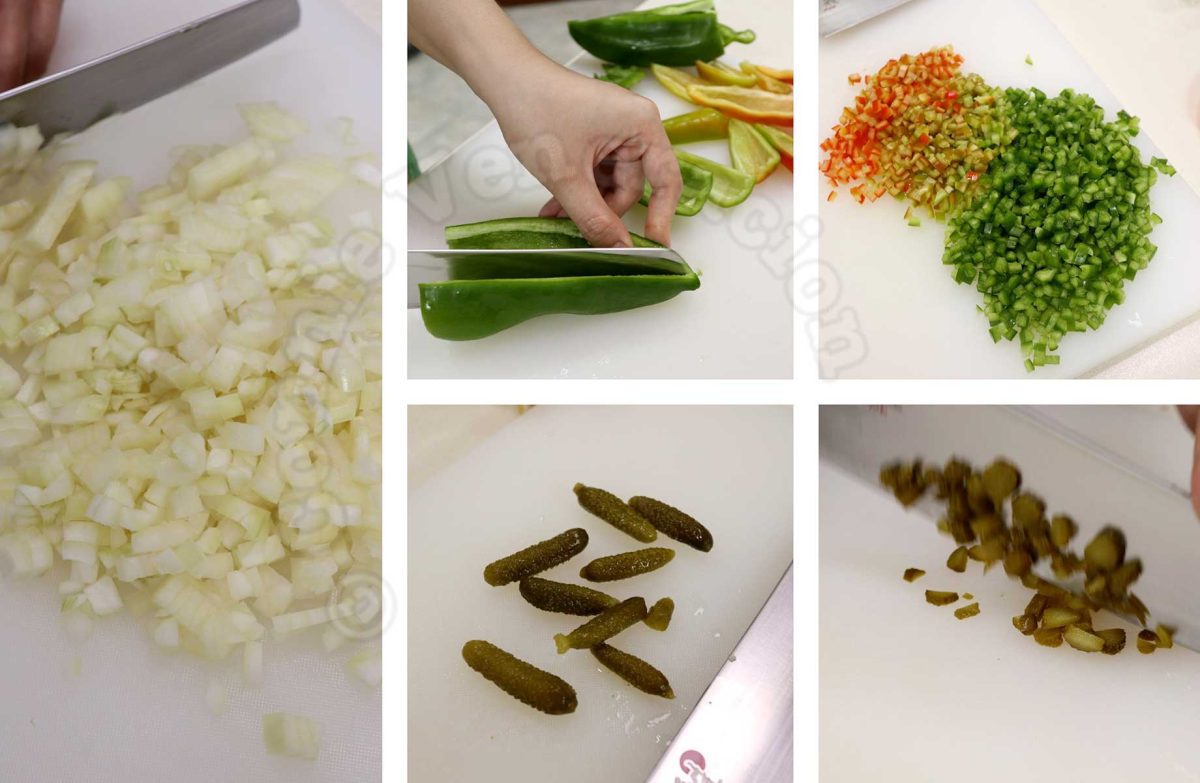
When the marinating time is nearing its end, prep your vegetables. Peel and chop your onion, deseed and chop bell peppers, and chop dill pickles.
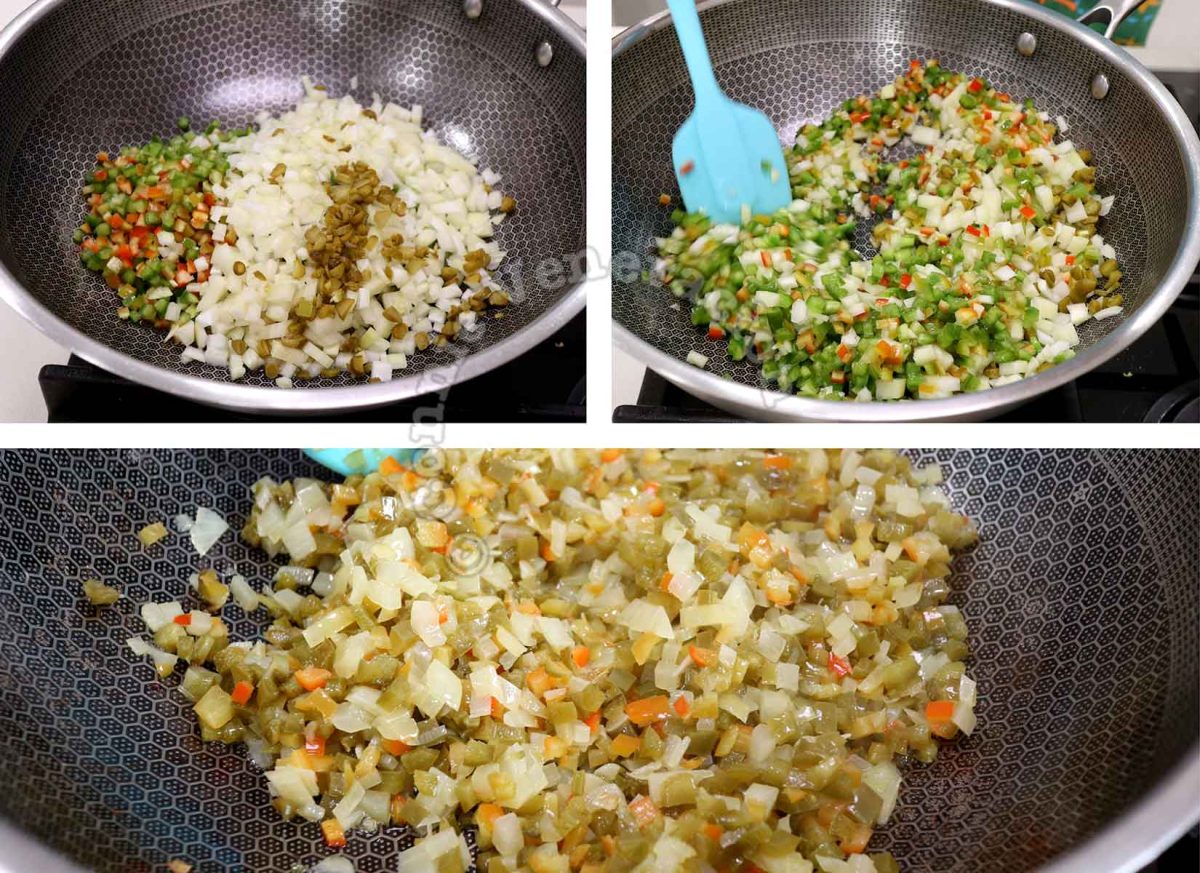
The actual cooking begins with sauteeing the chopped vegetables in olive oil. Sauteeing means medium heat, of course, and the vegetables need to be stirred often until they are soft. The tell-tale sign that they are sufficiently cooked is when the onion pieces turn translucent. Scoop out the vegetables and place in a bowl.

Heat more olive oil and spread the pork in the hot oil. Cook, stirring the pork occasionally, until the surfaces are lightly browned.
Add the sauteed vegetables to the pork. Mix Balsamic vinegar with tomato paste and pour in the mixture. Drain the raisins and add to the pork as well. Stir to blend.
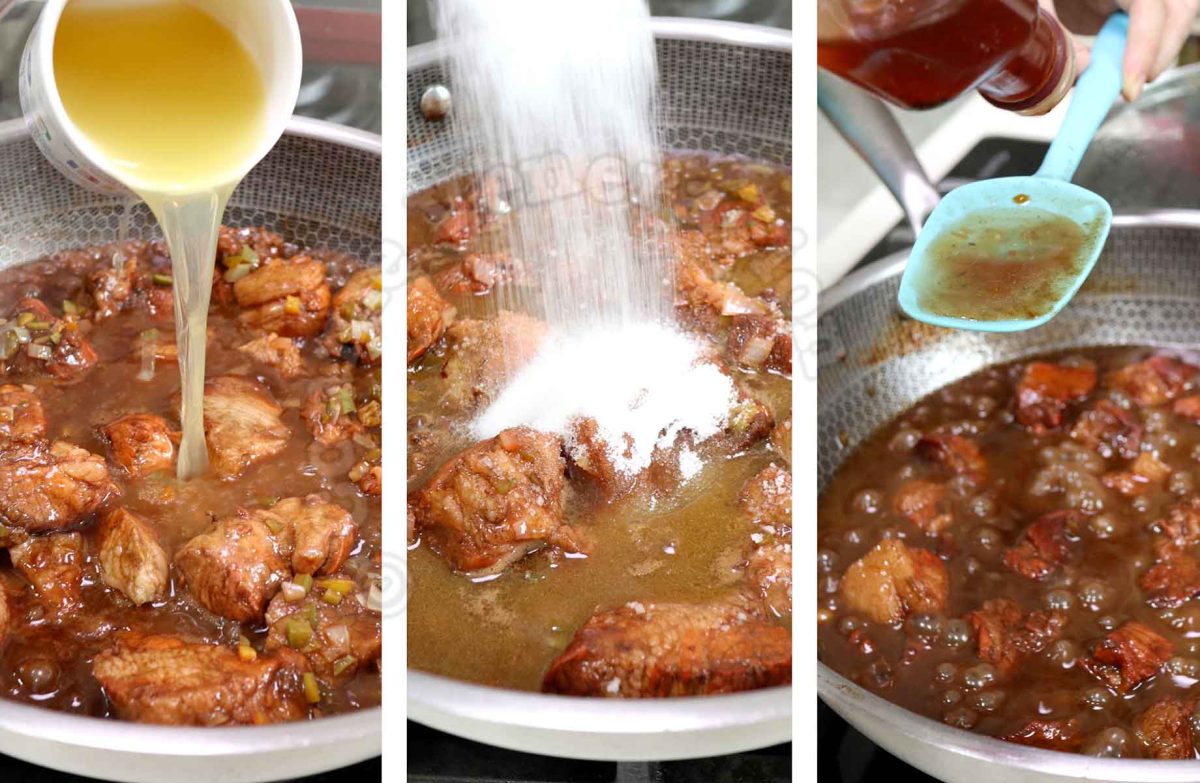
The pork needs liquid to cook in so broth is poured in. Sugar, red wine vinegar, salt and pepper are added before the heat is set to low and the pan is covered. Just let everything simmer until the pork is tender. If the liquid dries out, add more broth, a quarter cup or so at a time. Taste the sauce occasionally and adjust the seasonings, if needed.
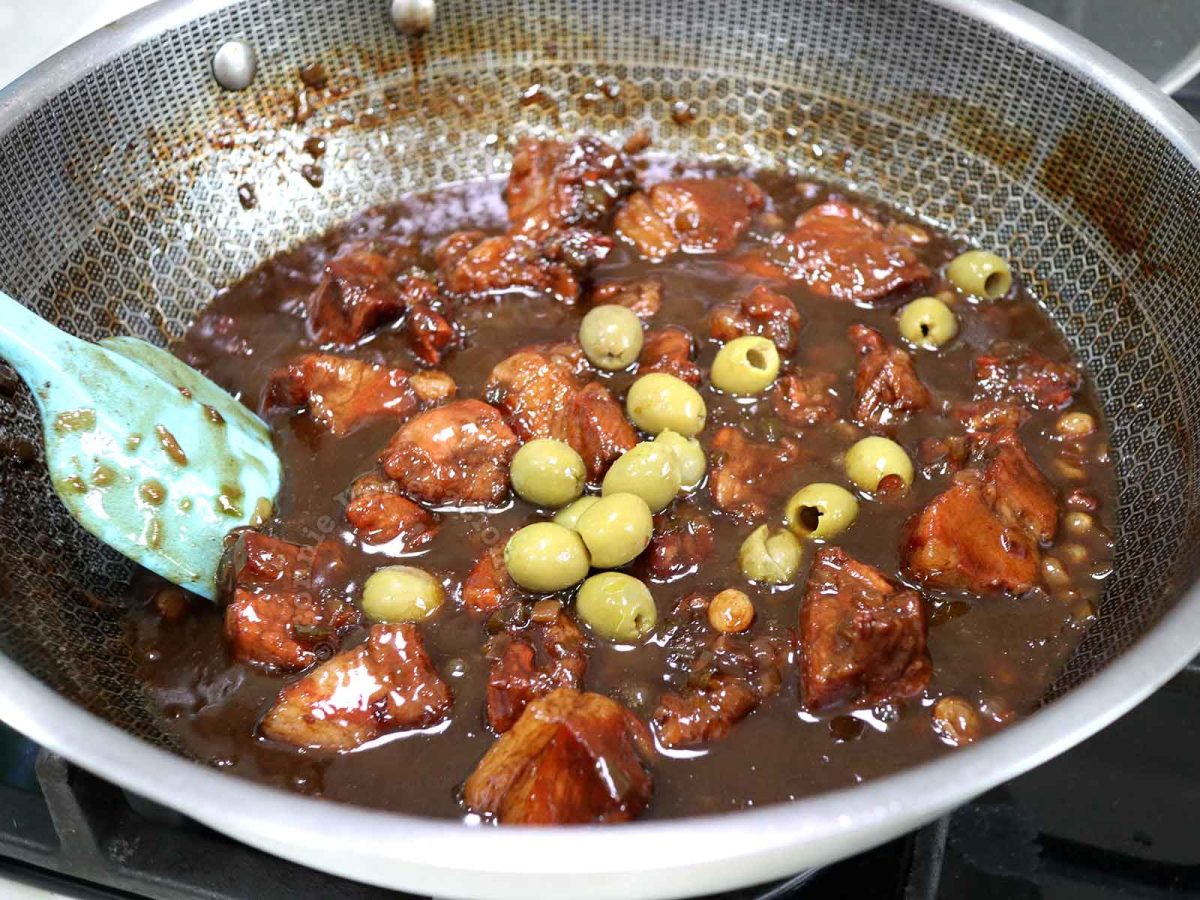
When the pork is tender, add pitted olives, stir and simmer for a few minutes longer. Give the stew a final taste, adjust the seasonings one last time, if required, and serve.
Italian-style sweet and sour pork stew (spezzatino agrodolce)
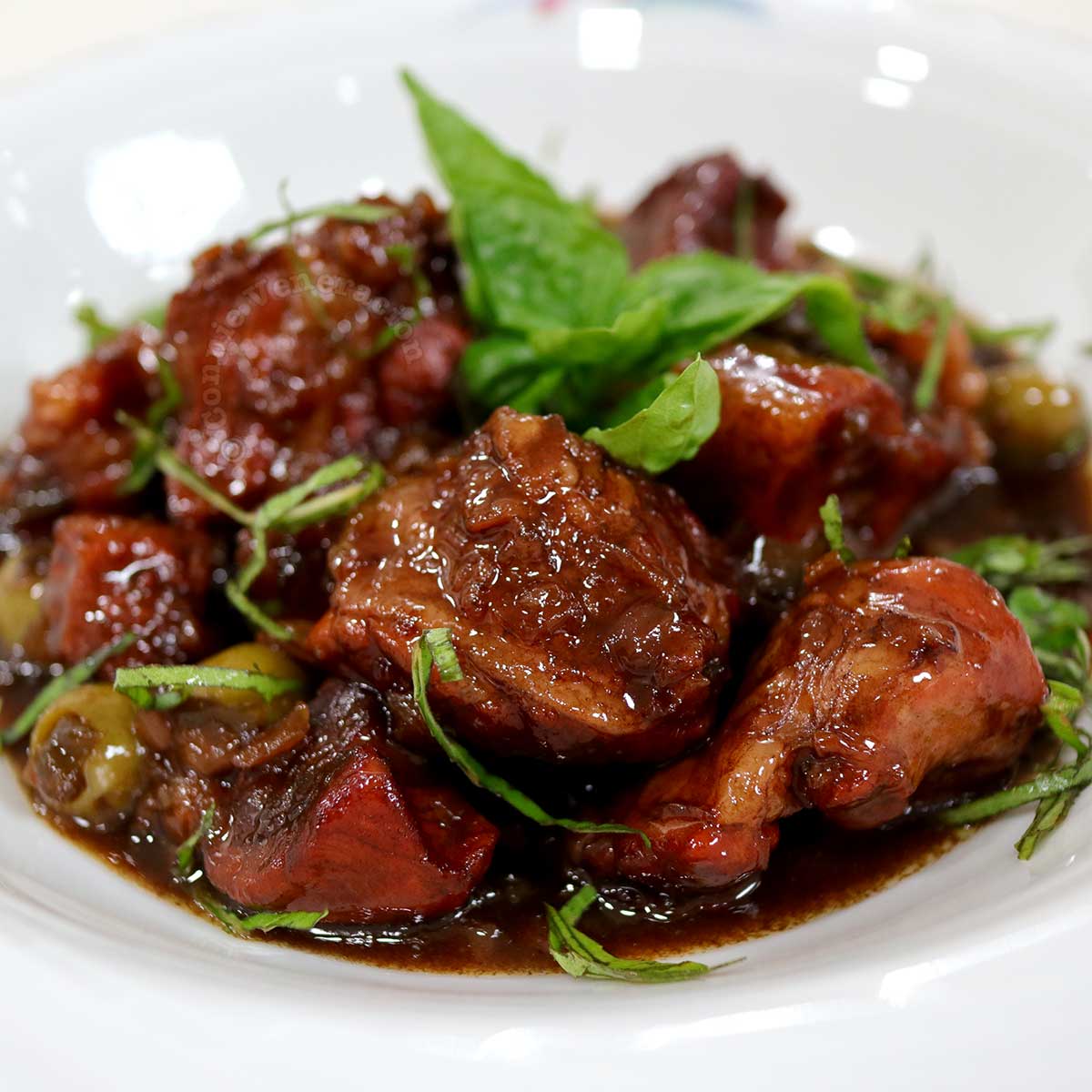
Ingredients
- 750 grams skinless pork shoulder cut into 1 ½ inch cubes
- ¼ cup brandy
- 4 tablespoons balsamic vinegar divided
- ⅓ cup raisins
- 6 tablespoons olive oil (not extra virgin)
- 2 large green bell peppers deseeded, cored and finely chopped
- 2 large red bell peppers deseeded, cored and finely chopped
- 1 onion peeled finely chopped
- 4 pickles drained and finely chopped
- 2 tablespoons tomato paste
- 3 cups broth chicken broth is used here
- 2 tablespoons sugar or to taste
- 2 tablespoons red wine vinegar
- salt to taste
- pepper to taste
- 15 to 20 pitted olives
Instructions
- Place the pork in a glass bowl. Add the brandy and balsamic vinegar. Mix.
- Cover the bowl and marinate the pork in the fridge for at least two hours.
- Place the raisins in a bowl, cover with hot water and leave to soak.
- Heat half of the olive oil in a pot. Add the bell peppers, onion and pickles and saute for about five minutes or until the vegetables start to turn soft. Scoop out and move to a bowl.
- Pour the remaining olive oil into the pan and heat.
- Spread the marinated pork in the hot oil and cook, stirring often, until lightly browned.
- Stir the remaining half of Balsamic vinegar with the tomato paste.
- Add the sauteed vegetables, Balsamic vinegar-tomato paste mixture, and drained raisins to the pork, and stir well.
- Pour in two cups broth, and add the sugar and the red wine vinegar.
- Sprinkle in a teaspoon of salt and a quarter teaspoon of pepper, and stir.
- Set the heat to low, cover the pot and cook the pork until tender. If the sauce dries out before the pork is ready, add the remaining broth, no more than a quarter cup at a time.
- Stir in the olives and simmer for another five minutes.
- Taste and adjust the seasonings, if needed, before serving.

